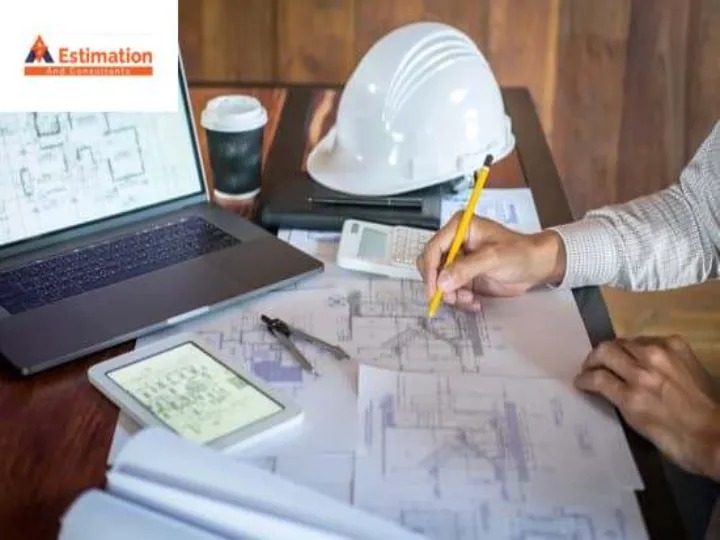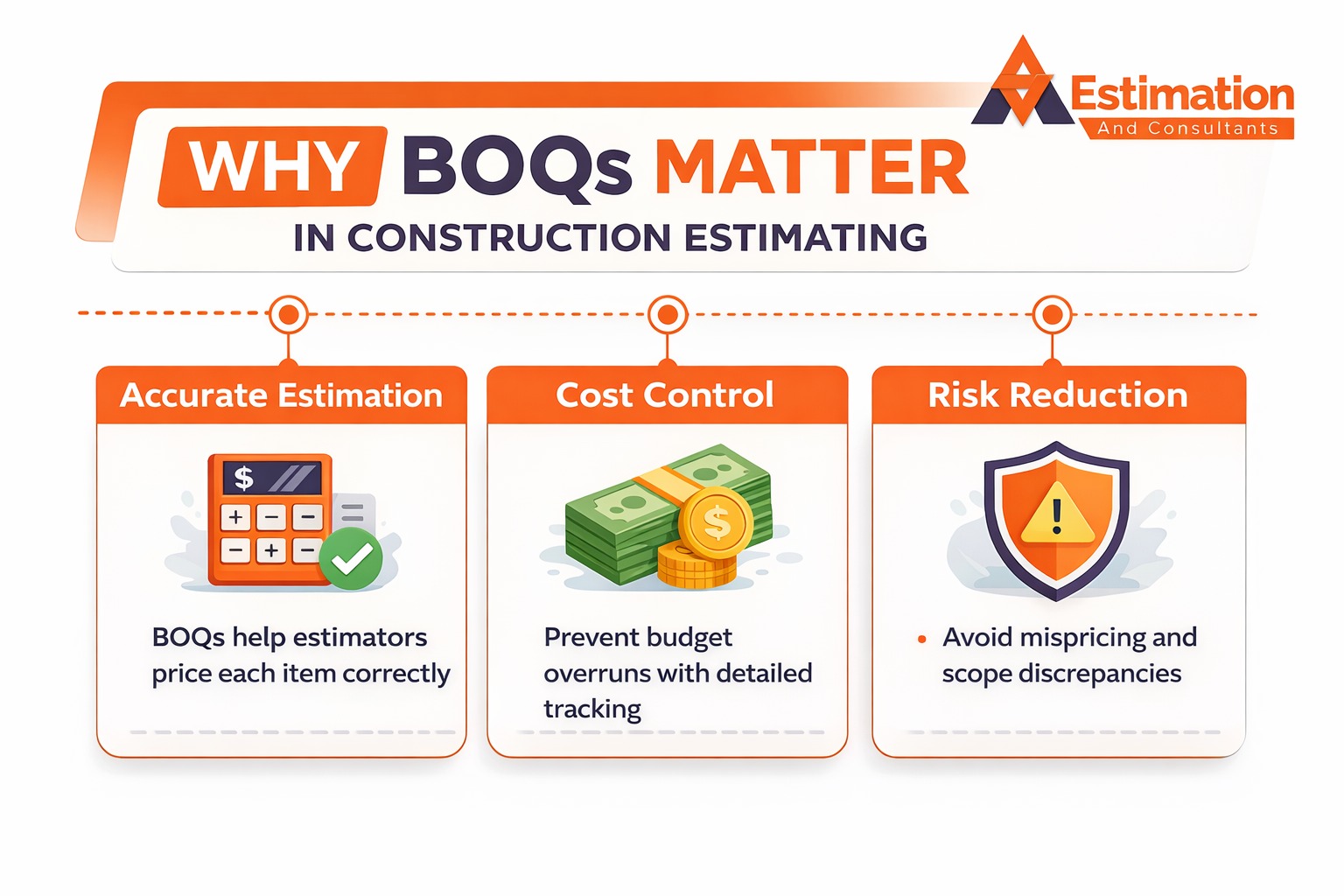Starting a commercial construction project without a detailed and accurate estimate is like navigating a ship without a map. Without a clear financial plan, businesses can easily fall into the trap of unexpected costs, project delays, and resource misallocation. A commercial estimate provides a financial roadmap that helps businesses allocate funds wisely, make strategic decisions, and prevent costly mistakes. It is a vital tool for setting realistic expectations, avoiding disputes, and ensuring the project is completed within budget and on schedule. When businesses underestimate the costs of labor, materials, permits, and unforeseen challenges, they risk running out of funds midway through the project or being forced to compromise on quality. This can have long-term negative effects, including lost revenue, damaged reputation, and missed business opportunities. In this article, we will explore why every business must prioritize accurate commercial estimating before beginning any project and how it contributes to successful outcomes.
The Importance of an Accurate Commercial Estimate
An accurate commercial estimate is more than just a cost breakdown—it serves as a project blueprint that ensures every aspect of the build is accounted for. A lack of proper estimation can lead to cascading financial and operational issues, making it difficult to meet deadlines, maintain quality, and uphold business credibility.

Estimating is not just about predicting expenses; it also involves forecasting labor requirements, scheduling deliveries, identifying potential risks, and planning for unforeseen variables. Without an accurate estimate, companies are left vulnerable to cost overruns, contract disputes, and unexpected interruptions that could derail their entire operation.
1. Prevents Budget Overruns and Financial Losses
One of the biggest risks in commercial construction is underestimating costs. When businesses fail to account for every expense, they can quickly find themselves over budget, leading to financial strain, project halts, or even complete abandonment of the job. Budget overruns often force businesses to make difficult choices, such as cutting corners on materials, reducing labor quality, or sacrificing key project features to compensate for unanticipated expenses.

A well-prepared estimate accounts for every possible cost, including:
- Material Costs – Construction materials fluctuate in price based on supply chain disruptions, inflation, and seasonal demands. A precise estimate considers market trends and potential price hikes to prevent budget shortfalls.
- Labor Costs – Wages vary depending on skill levels, project complexity, and industry standards. Accurately estimating labor costs ensures that businesses hire the right professionals without exceeding financial limits.
- Permits and Inspections – Building codes, safety regulations, and legal requirements vary by location. Failing to include permit fees and inspection costs can result in hefty fines or project shutdowns.
- Contingency Planning – Even with the most detailed plans, unforeseen expenses can arise, such as site complications, weather delays, or supplier shortages. An accurate estimate includes a contingency fund to absorb these additional costs without disrupting progress.
Budget overruns can cripple a company’s financial health, forcing businesses to scramble for additional funding or risk abandoning the project altogether. A well-researched estimate prevents these financial pitfalls by setting realistic budget expectations from the beginning.
2. Enhances Project Planning and Scheduling
A commercial estimate does more than determine the cost of a project—it also helps in planning and scheduling every phase of construction. Without a clear estimate, project managers struggle to allocate resources efficiently, leading to delays, miscommunication, and uncoordinated workflows. Poor scheduling can result in extended labor costs, material shortages, and unnecessary downtime, all of which can inflate project expenses.

With a well-prepared estimate, businesses can:
- Allocate resources efficiently – Construction requires coordination between contractors, suppliers, and workers. A precise estimate ensures that materials are ordered on time, equipment is scheduled properly, and labor is assigned efficiently.
- Schedule labor properly – Hiring too many workers at once can lead to unnecessary labor expenses, while understaffing can cause delays. An estimate helps in balancing workforce distribution to maintain steady progress.
- Coordinate supply deliveries – Materials arriving too early take up unnecessary storage space and increase holding costs, while late deliveries disrupt workflow. A proper estimate ensures just-in-time procurement to streamline the supply chain.
- Reduce downtime – Construction delays can arise from poor planning, unexpected site conditions, or coordination failures. A detailed estimate factors in potential disruptions, allowing businesses to anticipate and mitigate risks proactively.
Proper scheduling keeps projects running smoothly, preventing costly setbacks and ensuring timely completion. It also improves overall efficiency, as resources are used optimally without unnecessary waste or excess spending.
3. Helps Businesses Secure Financing and Investment
For many businesses, commercial projects require external funding, whether through loans, grants, or investors. Lenders and stakeholders need to see a detailed estimate before committing financial support. An inaccurate or vague estimate raises concerns about financial mismanagement, increasing the likelihood of loan rejection or hesitant investors.

A well-structured commercial estimate demonstrates:
- Credibility – Banks and investors are more likely to fund a business that has done thorough research and presents a well-calculated budget. A strong estimate reassures them that their money is being used wisely.
- Feasibility – A properly prepared estimate proves that the project is realistic, achievable, and capable of generating returns. Investors want to see that their funds will be put to good use with minimal risk.
- Risk Management – Financial institutions evaluate risks before approving funding. An estimate that includes contingency planning shows that the business is prepared for potential challenges, making it a lower-risk investment.
Securing financing is often one of the biggest hurdles in commercial construction, and an inaccurate estimate can make the difference between receiving approval or being denied essential funding.
4. Ensures Fair and Transparent Contractor Agreements
Many businesses hire contractors to complete their commercial projects, but without an accurate estimate, companies risk being overcharged or misled. Contractors may provide vague estimates that lead to disputes later, creating unnecessary friction between businesses and service providers.

By having a professional estimate, businesses can:
- Compare contractor bids effectively – With a clear estimate, businesses can evaluate contractor quotes based on actual market rates rather than guesswork, ensuring they select the best option without overpaying.
- Negotiate better contract terms – Businesses equipped with accurate cost data have more leverage in negotiations, allowing them to secure fair pricing, realistic timelines, and better service agreements.
- Avoid cost disputes – A well-documented estimate clearly outlines project expenses, reducing the chances of billing conflicts, hidden fees, or unexpected price hikes.
Contractor agreements should be built on transparency and fairness, which can only be achieved when both parties have a clear understanding of project costs.
5. Reduces the Risk of Legal and Regulatory Issues
Every commercial project must adhere to local building codes, safety regulations, and environmental laws. If businesses fail to account for these requirements in their budget, they may face legal fines, work stoppages, or project cancellations.

An accurate commercial estimate includes:
- Permit and Licensing Fees – Legal permits ensure compliance with zoning laws and building regulations. These costs must be accounted for in advance to prevent delays.
- Inspection Costs – Routine inspections guarantee that the project meets quality and safety standards. Failing to include these costs can result in project penalties or shutdowns.
- Compliance Costs – Businesses must adhere to environmental, labor, and industry-specific regulations. Overlooking these requirements can result in costly legal battles or forced project modifications.
A legally compliant estimate prevents regulatory issues, ensuring the project proceeds without legal complications.
Conclusion
An accurate commercial estimate is the foundation of any successful business project. It provides financial clarity, enhances planning, ensures compliance, and secures financing, all while preventing budget overruns and unexpected setbacks. Without a detailed estimate, businesses risk financial instability, legal issues, and project delays that can hinder growth and profitability.
At AS Estimation & Consultants, we specialize in delivering precise and comprehensive commercial estimates tailored to your project needs. Whether you’re planning a new construction, renovation, or expansion, our expert estimating services will help you stay on budget and on schedule. Contact us today to ensure your next project is set up for success!


